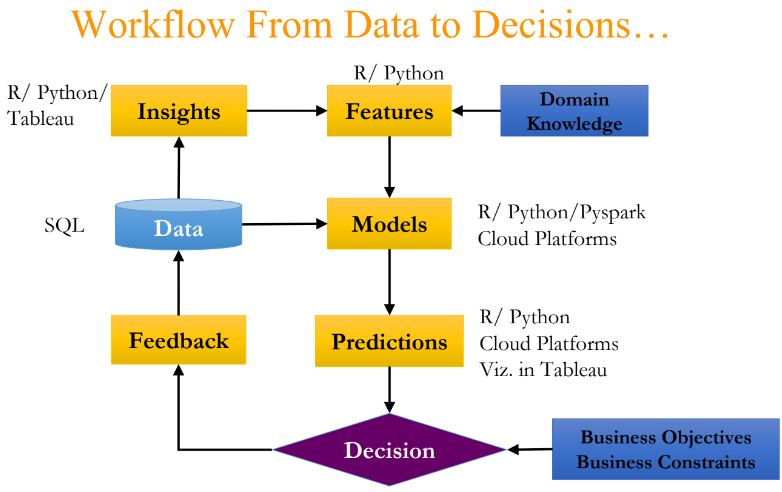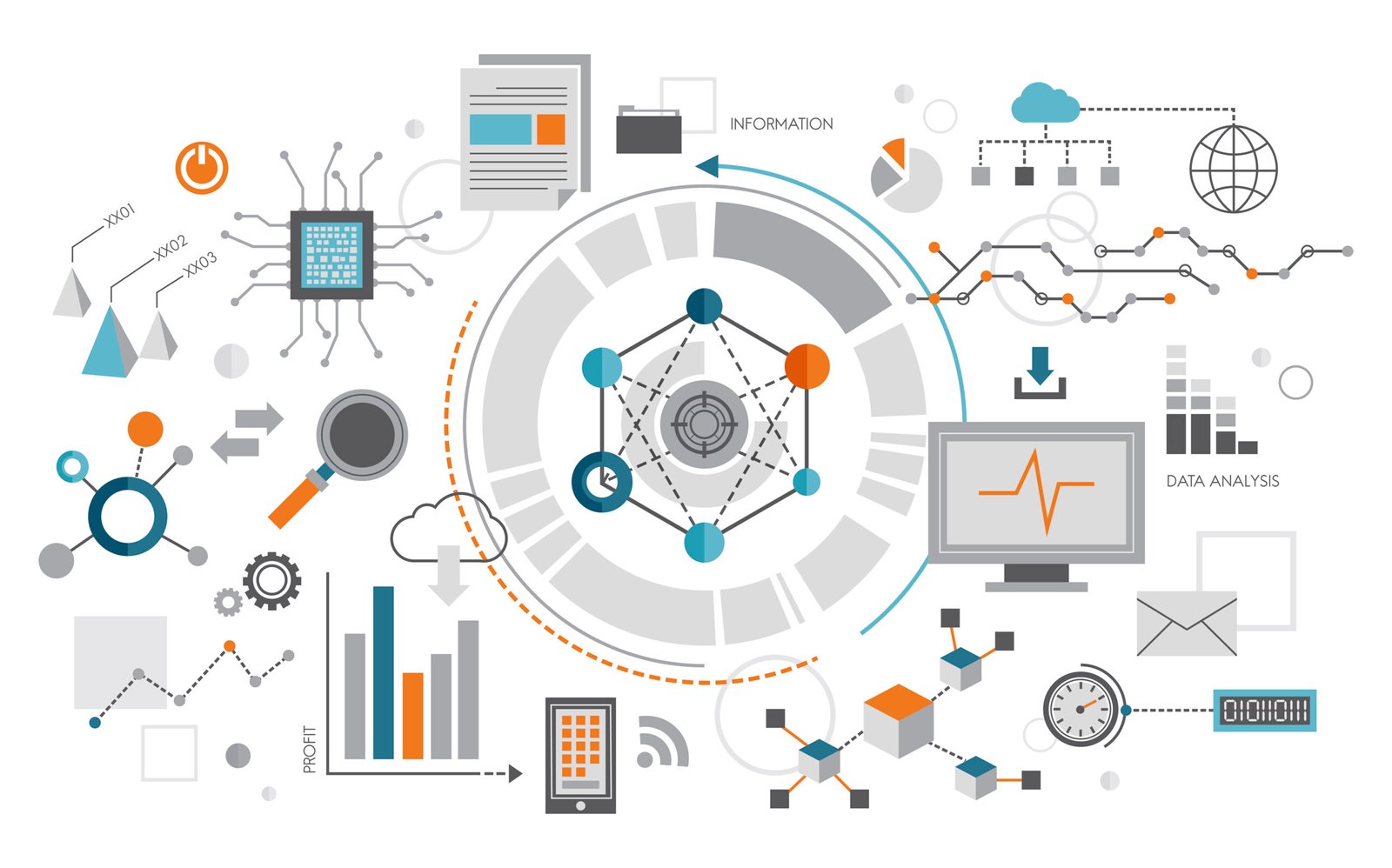In the modern era dominated by data, the role of a data scientist has become increasingly pivotal across various industries. As organizations seek to derive insights, make informed decisions, and gain a competitive edge, the demand for skilled professionals in data science continues to soar. In this article, we delve into the compelling reasons why choosing data science as a career can be immensely rewarding and impactful.
What is data science?
Data science can be best described as the interdisciplinary field that involves extracting knowledge and insights from structured and unstructured data. It encompasses a range of techniques, including statistical analysis, machine learning, data mining, and visualization, to uncover patterns, trends, and correlations within large datasets. Essentially, data science is all about transforming raw data into actionable insights that drive informed decision-making and business strategies.
Need for data science
In today’s data-driven world, organizations are inundated with vast amounts of data from various sources, including social media, sensors, and online transactions. However, raw data alone is of little use unless it’s analyzed and interpreted effectively. This is where data science comes into play. By leveraging advanced analytics techniques, data scientists can sift through mountains of data to uncover valuable insights, identify trends, predict outcomes, and optimize processes. In essence, data science empowers businesses to make informed decisions, enhance efficiency, and gain a competitive edge in the market.
Why there is excitement about the Data?
The excitement surrounding data science stems from its transformative potential across industries. From healthcare to finance to retail, data science has revolutionized how organizations operate and compete in today’s digital landscape. By harnessing the power of data, businesses can personalize customer experiences, optimize supply chains, detect fraud, improve healthcare outcomes, and much more. Moreover, the continuous advancements in technology, such as artificial intelligence and big data analytics, further amplify the capabilities of data science, making it an exciting and dynamic field to be a part of.
The MOST PROMISING JOB of 20th CENTURY
In the ever-evolving landscape of careers, few paths have garnered as much attention and acclaim as data science. Widely hailed as the “most promising job of the 21st century,” data science has captured the imagination of professionals seeking dynamic opportunities in a rapidly digitizing world. With its ability to unlock valuable insights from vast troves of data, data science has transcended traditional job roles to become a cornerstone of innovation across industries.
- Data Scientist – Top job of 21st century – Harvard
- Machine Learning and Artificial Intelligence will alter most industries, making way for virtual helpers and myriad cases for automization – Indiatoday.in
- Forty percent of companies are struggling to find and retain analytics talent, and the picture is starting to look even more bleak – Business.com
Salary Trends for Data Science Professionals
Data science has not only emerged as a highly sought-after career path but also boasts impressive salary prospects. As organizations recognize the value of data-driven decision-making, the demand for skilled data science professionals has surged, leading to competitive compensation packages. Here’s an overview of the salary trends for data science professionals:
- Lucrative Compensation: Data science roles often command attractive salaries due to the specialized skill set and high demand. According to recent studies, data scientists typically earn above-average salaries compared to professionals in other fields.
- Variability Across Industries: Salary levels for data science professionals can vary significantly depending on factors such as industry, location, experience, and level of education. For instance, tech companies and financial institutions tend to offer higher salaries compared to non-profit organizations or government agencies.
- Experience Matters: Experienced data scientists with several years of industry experience and a proven track record of success often command higher salaries. As professionals gain expertise in advanced techniques such as machine learning and artificial intelligence, their earning potential tends to increase.
- Geographical Considerations: Salary levels for data science professionals can vary based on geographic location, with certain regions offering higher compensation to attract top talent. Major tech hubs like Silicon Valley, New York City, and Seattle typically offer higher salaries to data scientists compared to smaller cities or rural areas.
- Continuous Growth: As the demand for data science professionals continues to rise, salary trends reflect steady growth. Companies are willing to invest in top talent to harness the power of data and gain a competitive edge in the market.
Applications of Data Science
The applications of data science are virtually limitless, spanning across diverse industries and domains:
- Healthcare: Predictive analytics for disease diagnosis, personalized treatment plans, and patient risk assessment.
- Finance: Fraud detection, risk management, algorithmic trading, and personalized financial services.
- Retail: Customer segmentation, demand forecasting, pricing optimization, and recommendation systems.
- Marketing: Targeted advertising, customer sentiment analysis, and campaign optimization.
- Manufacturing: Predictive maintenance, supply chain optimization, and quality control.
- Transportation: Route optimization, demand forecasting, and fleet management.
Workflow from Data to Decision

What does it takes to be a successful Data Scientist?
- Technical Proficiency: Mastery of programming languages (e.g., Python, R), data manipulation (e.g., SQL), and data visualization tools (e.g., Tableau).
- Analytical Skills: Understanding of statistical methods, machine learning algorithms, and data modelling techniques.
- Domain Expertise: Familiarity with industry-specific challenges, trends, and best practices.
- Soft Skills: Effective communication, critical thinking, problem-solving abilities, and a passion for continuous learning.
Conclusion
Choosing a career in data science offers a gateway to a world of endless possibilities. By leveraging its transformative potential and honing essential skills, aspiring data scientists can embark on a rewarding journey filled with innovation, impact, and growth. If you’re intrigued by the dynamic interplay of data and technology and eager to shape the future, data science presents an exciting and promising career path to explore.

